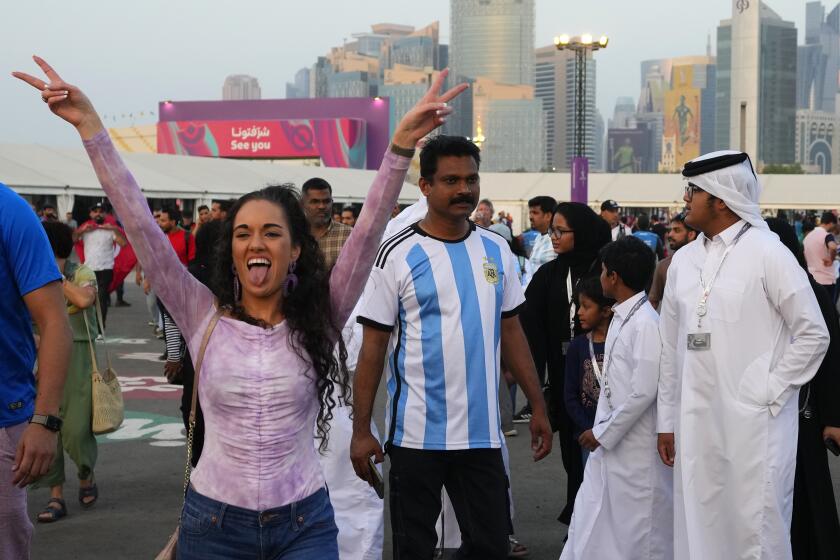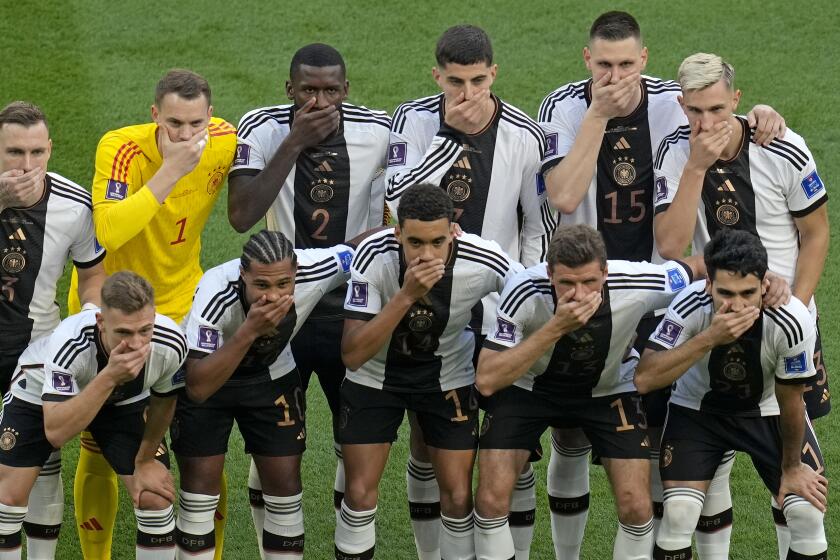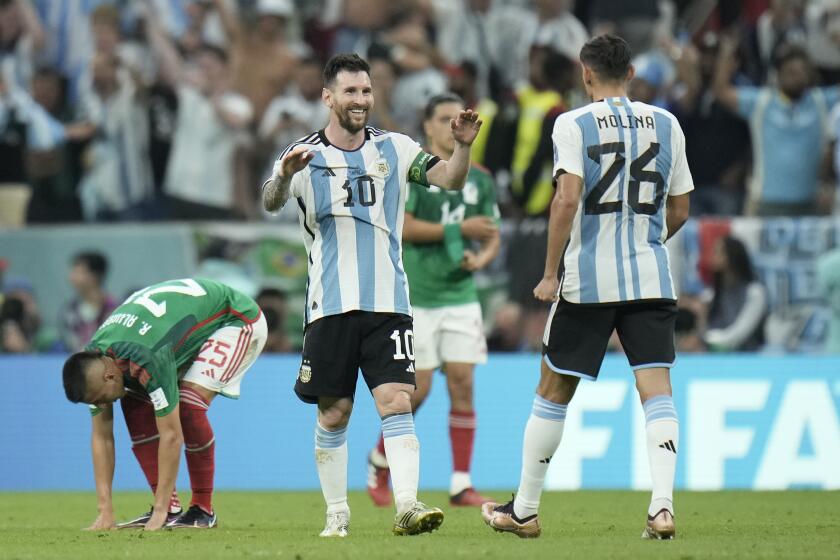World Cup: U.S. briefly protests Iran by stripping flag of Islamic Republic emblem online

AL RAYYAN, Qatar — German players wore rainbow colors on their boots and put their hands over their mouths in a pregame photo, mocking attempts by FIFA to silence them. Iran’s players refused to sing the national anthem before their opening game. And seven European nations, including Germany, issued a strongly worded statement protesting FIFA’s decision denying a request to wear armbands in support of the OneLove movement, which promotes diversity and inclusion.
The U.S., meanwhile, has taken a much less confrontational — and arguably more effective — approach with its messaging. The federation altered its crest, replacing the seven vertical red bars with rainbow-colored ones in support of LGBTQ rights, but it displayed the altered crest only in areas visible to the players, staff members and media to avoid a row with FIFA.
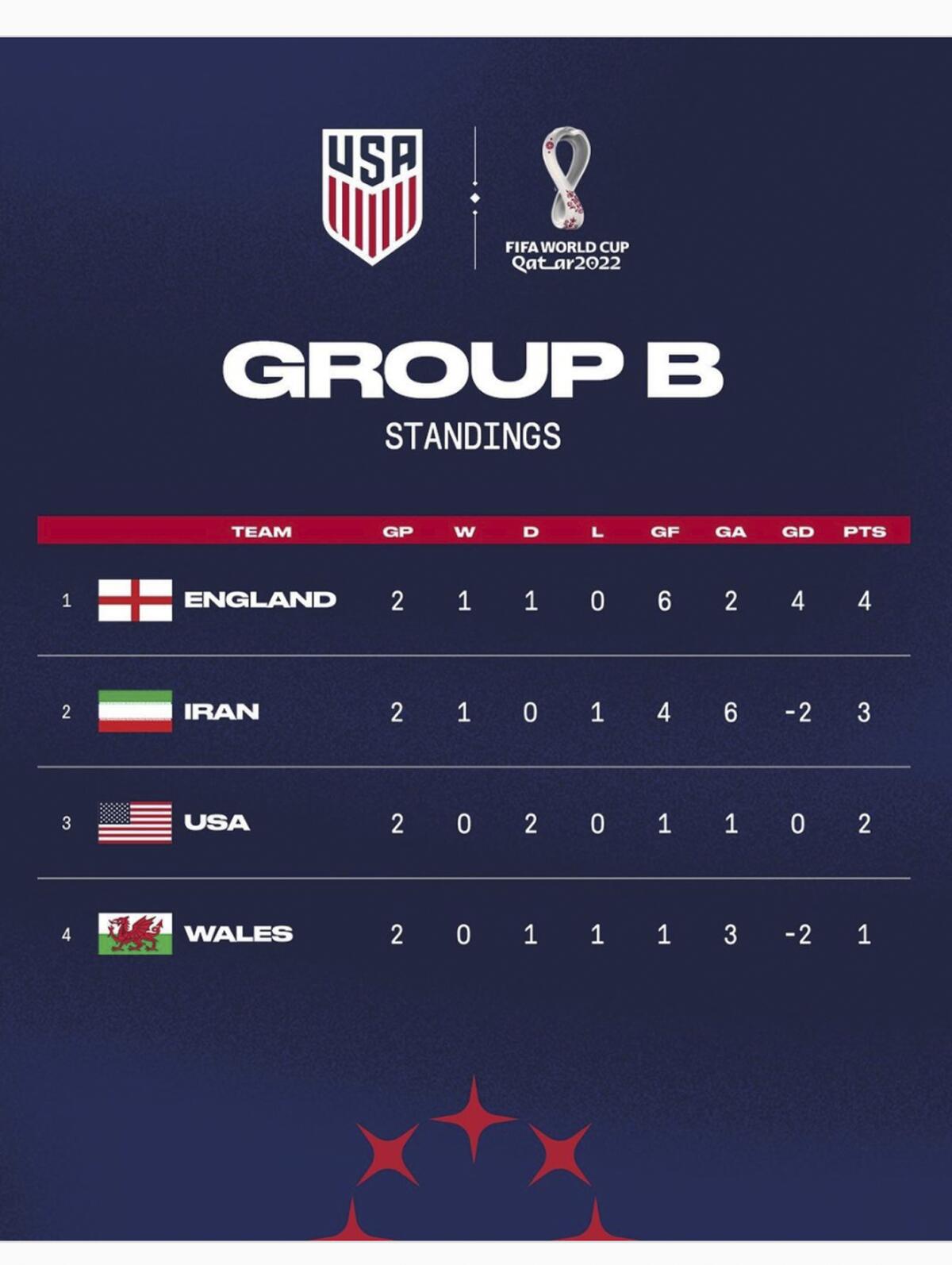
Coach Gregg Berhalter and his players have spoken out in support of human rights and free speech, but have been careful to avoid mention of Qatar to avoid offending their host.
And this weekend, days before its crucial group-stage finale with Iran, the U.S. briefly removed the emblem of the Islamic Republic from Iran’s flag in the federation’s social media posts. The U.S. released a statement Sunday saying it made the change to show “support for the women in Iran fighting for basic human rights.”
This version of American subtle diplomacy was short-lived, however, with the official flag returning to U.S. social media posts Sunday afternoon. A spokesman said the change came after a series of internal discussions.
Qatar’s rise on the world stage aims to achieve new heights with the World Cup, but can the country’s ambitious plans mesh with its traditional culture?
Iran has been engulfed in street demonstrations since the Sept. 16 death of 22-year-old Mahsa Amini, who was taken into custody by the country’s so-called morality police after being accused of wearing her hijab incorrectly. At least 450 people have died and more than 18,000 have been arrested in the last two months.
Iranian state television said the U.S. federation’s move was akin to “removing the symbol of Allah” from the Iranian flag, according to the Associated Press. Iran’s semiofficial ISNA news agency quoted Safiollah Fagahanpour, an adviser to the Iranian Football Federation, as saying the “measures taken regarding the Islamic Republic of Iran flag are against the law” of FIFA competitions.
German players wore rainbow items and covered their mouths during a World Cup pregame photo to protest FIFA’s ban on LGBT symbols.
“They must be held responsible,” Fagahanpour added. “Obviously they want to affect Iran’s performance against the U.S by doing this.”
The U.S. and Iran meet Tuesday with a place in the World Cup’s knockout rounds at stake.
Klinsmann-Queiroz feud
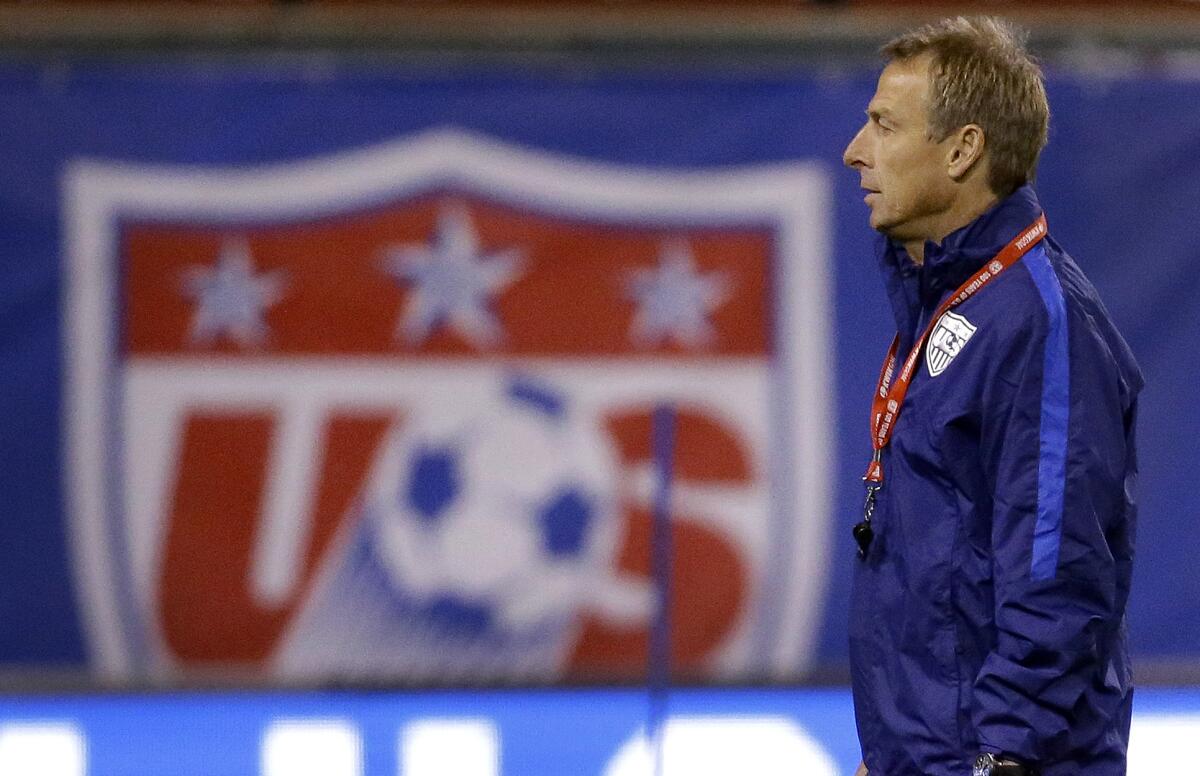
A U.S.-Iran battle broke out on another front with Iran’s Portuguese coach, Carlos Queiroz, firing back at Jurgen Klinsmann, who coached the U.S. in its last World Cup appearance in 2014, after Klinsmann accused Queiroz’s team of using dirty tactics, saying it’s part of their culture.
Klinsmann made the comments as part of his work as an BBC analyst following Iran’s victory over Wales on Friday.
The Iranian soccer federation and Queiroz called Sunday for Klinsmann, a World Cup winner as a player with Germany, to resign from FIFA’s technical study group over the comment. The federation also demanded an apology.
The U.S. played No. 5-ranked England to a 0-0 tie in a World Cup match Friday and controls its destiny heading into Tuesday’s group-play finale with Iran.
“That’s their way of doing it. And that’s why Carlos Queiroz, he fits really well [with] the Iranian national team,” said Klinsmann, who also disparaged players from Central America. “I worked for the U.S. for six years. They went to Guatemala, Honduras, Costa Rica. This fits their culture.”
Queiroz has had a long and distinguished career, coaching club giants Real Madrid and Sporting CP as well as the MetroStars in MLS. He previously coached Portugal in a World Cup and has taken Iran to the tournament three times.
Argentina-Mexico crowd
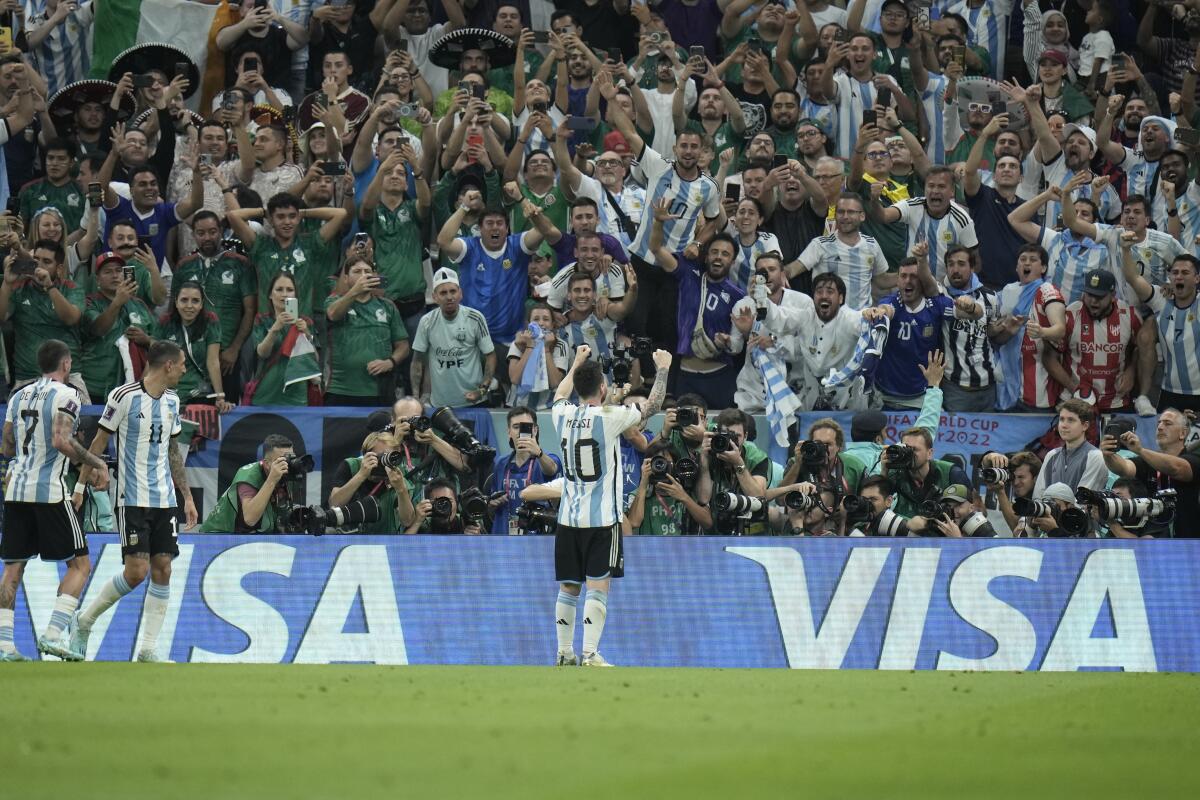
The announced attendance of 88,966 for Saturday’s Argentina-Mexico match at Lusail Stadium was the largest for a World Cup game since the 1994 final, when 91,194 packed the Rose Bowl to see Brazil beat Italy on penalty kicks. The two-month-old stadium, about 12 miles north of Doha, is the largest in Qatar and will host next month’s finale.
The Associated Press contributed to this report.
Lionel Messi scored for Argentina in a 2-0 win over Mexico, rejuvenating his team’s chances of getting out of the group stage while damaging Mexico’s.

